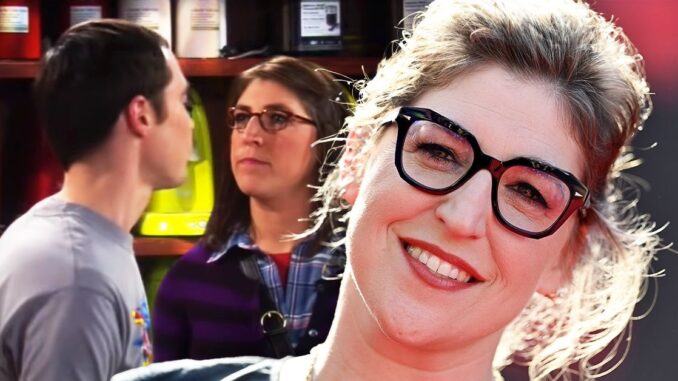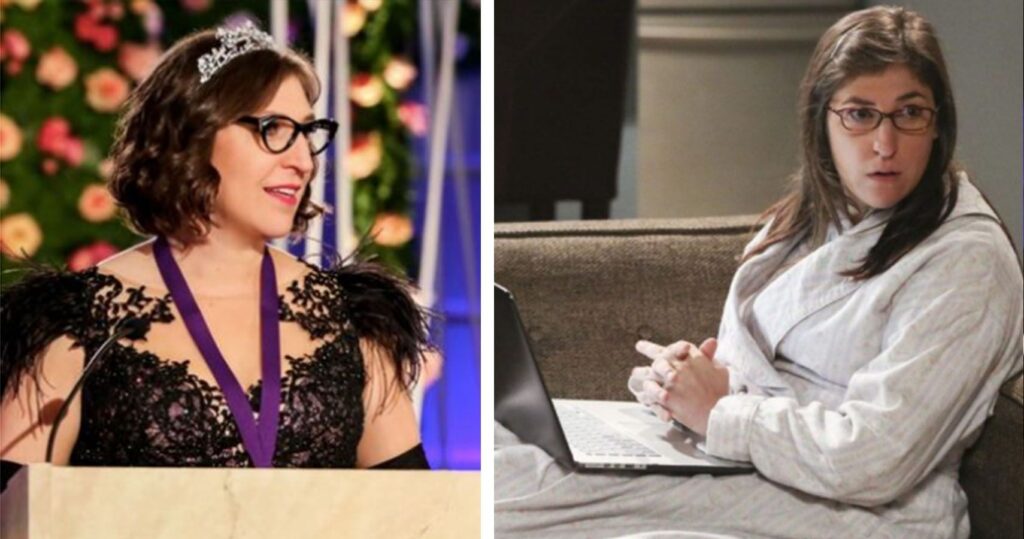
Sitcoms have long reflected societal norms while simultaneously bending them for comedic effect. The Big Bang Theory (TBBT), though more family-friendly than Chuck Lorre’s previous works like Two and a Half Men, wasn’t exempt from perpetuating problematic humor. One recurring gag in the show involving Amy Farrah Fowler shines a light on sitcoms’ broader double standards, particularly how they treat personal boundaries differently for men and women.
A Recurring Gag Exposes Sitcom Hypocrisy
Respecting personal boundaries is a fundamental aspect of human interaction, but sitcoms often disregard this principle for laughs. Male characters’ boundaries are especially prone to being the punchline, and TBBT leaned into this trope.
Jim Parsons’ character Sheldon Cooper is known for his aversion to physical contact, a trait rooted in his personality and explored in-depth in the prequel series Young Sheldon. However, Mayim Bialik’s Amy Farrah Fowler repeatedly disregarded this boundary in the main series, often trying to get physical with Sheldon against his wishes.
Rather than addressing the underlying issues or emotional toll of Amy’s actions, the show treated these moments as comedic fodder, building a running gag that drew laughs at the expense of a sensitive topic. This treatment of boundaries highlights a broader hypocrisy in television: Amy’s forcefulness is played as humor, but if the roles were reversed, the behavior would likely be viewed as predatory or unacceptable.
As media evolves, such jokes are increasingly criticized, and audiences hope writers will start tackling these behaviors more thoughtfully rather than using them as easy comedic material.
Amy’s Role in Shaping Sheldon’s Character
Amy’s introduction in Season 3 marked a pivotal shift not only for Sheldon but also for the show’s trajectory. Before Amy, Sheldon was widely perceived as asexual, a characterization that Jim Parsons himself supported. Series co-creator Chuck Lorre noted that Sheldon’s lack of interest in relationships made him a unique character.
“Sheldon just didn’t care [about relationships]. He was not attracted to anybody. He was attracted to science,” Lorre shared, reflecting on the show’s initial portrayal of Sheldon as an independent, self-sufficient individual.

Amy’s arrival, however, altered this dynamic. Rather than detracting from Sheldon’s character, her presence became a catalyst for his emotional growth. Their relationship allowed audiences to see a different side of Sheldon, one where he gradually opened himself up to intimacy and personal connections—albeit on his terms.
Mayim Bialik’s Influence on the Show
Mayim Bialik’s portrayal of Amy brought a new depth to the series, pushing the writers to explore Sheldon’s romantic evolution. This development added nuance to Sheldon’s character, moving him beyond his initial quirks and into more complex emotional territory. For Jim Parsons, this shift was a welcome change, as Amy’s inclusion alleviated some of the burdens of carrying Sheldon’s unique personality on his own.
Though Amy’s behavior occasionally bordered on problematic, her presence undeniably enriched the series, challenging Sheldon’s rigid worldview and allowing the character to grow in unexpected ways.
Rethinking Sitcom Tropes
As society becomes more aware of issues like personal boundaries and the impact of humor rooted in disrespect, shows like The Big Bang Theory face increased scrutiny. Amy’s forcefulness with Sheldon may have been treated as a harmless gag, but it underscores a double standard that reflects a broader cultural issue.
Moving forward, writers have an opportunity to create comedy that respects boundaries while still being entertaining. By addressing these themes with sensitivity, sitcoms can evolve alongside their audiences, offering humor that resonates without perpetuating harmful stereotypes.